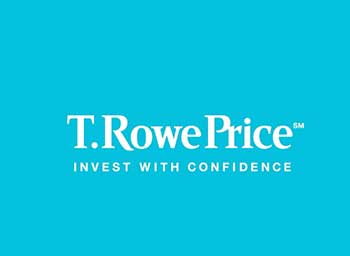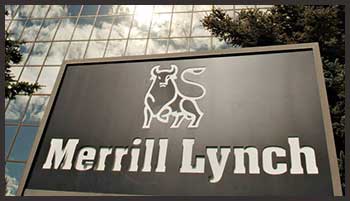When it comes to choosing an investment firm to manage your portfolio, two big names often come to mind – T. Rowe Price and Merrill Lynch. Both companies have been around for decades and have solid reputations, but they have some key differences that may make one a better fit depending on your needs and preferences.
This comprehensive guide examines the pros, cons, features, and fees of T. Rowe Price and Merrill Lynch to help you determine which is the better choice.
A Brief Comparison Table
| Feature | T. Rowe Price | Merrill Lynch |
| Account Minimum | $2,500 for mutual funds | $100,000 for dedicated advisor |
| Fees | No transaction fees, 0.69% average expense ratio | Commissions for trades, account fees under $250k, frontend loads |
| Investment Products | Mutual funds, ETFs, separate accounts | Stocks, bonds, mutual funds, ETFs, annuities |
| Research | Decent proprietary research and tools | Robust proprietary research and trading platforms |
| Mobile Apps | Basic apps available | Full account management on Merrill Edge app |
| Branches | None | Extensive branch network |
| Performance | Strong long-term mutual fund performance | Mixed performance for advisory accounts |
| Reputation | Excellent reputation for funds | Faced reputation damage over misconduct |
| Best for | Beginning investors, passive investors | Active traders, high net worth investors |
Overview Of T. Rowe Price
T. Rowe Price is one of the largest investment management firms in the United States. Founded in 1937, it offers a wide range of mutual funds, exchange traded funds (ETFs), and separate managed accounts.
Pros of T. Rowe Price

- Strong long-term performance: T. Rowe Price funds have consistently beaten category averages and benchmarks. Its blue-chip stock funds and target date retirement funds are especially well-regarded.
- Low account minimums: You can open a mutual fund account with just $2,500. This makes T. Rowe Price accessible to beginning investors.
- No transaction fees: T. Rowe Price doesn’t charge any trading commissions or fees to buy or sell its funds. This helps reduce costs for active traders.
- Wide range of investment options: T. Rowe Price offers funds covering major asset classes, market sectors, and investment strategies.
- Strong customer service: T. Rowe Price receives high marks from customers for its responsive and knowledgeable customer service.
Cons of T. Rowe Price
- Higher expense ratios: The average T. Rowe Price fund has an expense ratio around 0.69%, which is higher than rivals like Vanguard.
- Mostly actively managed funds: T. Rowe Price has very few index funds, which tend to have lower costs.
- Website could be better: The website and mobile apps lack some features offered by competitors. The research available is also not as robust.
Overview Of Merrill Lynch
Now owned by Bank of America, Merrill Lynch dates back to 1914. It offers brokerage services, investment advisory services, banking, and more.
Pros of Merrill Lynch

- Wide range of accounts: From regular taxable accounts to IRAs, 401(k) rollovers, trusts, and more, Merrill Lynch can handle diverse investor needs.
- Excellent research: Merrill Lynch creates abundant proprietary research on stocks, bonds, funds, and more. This can help guide investment decisions.
- Strong IRA rollover capabilities: Resources like the IRA Rollover Center make it easy to roll over 401(k)s from previous employers.
- Access to Bank of America services: As a Merrill client, you can conveniently do your banking with Bank of America and access preferred lending rates.
- Face-to-face advisor access: In addition to phone and online support, you can meet with a Merrill Lynch financial advisor in person at local branches.
Cons of Merrill Lynch
- High minimums and account fees: You’ll need at least $100,000 to work with a dedicated Merrill advisor. Lower asset balances incur annual account fees.
- Potential conflicts of interest: Since Merrill is owned by Bank of America, advisor recommendations may be influenced by corporate priorities.
- Commissions and transaction fees: Expect to pay $6.95 or more for stock and ETF trades. Mutual fund transaction fees can also apply.
- Reports of pushy sales culture: There have been complaints about overly aggressive sales tactics from some Merrill Lynch advisors.
Comparing Features Side-By-Side
| Feature | T. Rowe Price | Merrill Lynch |
| Account Minimum | $2,500 for mutual funds | $100,000 for dedicated advisor |
| Investment Products | Mutual funds, ETFs, separate accounts | Stocks, bonds, mutual funds, ETFs, annuities, alternatives |
| Fees | No transaction fees, 0.69% average expense ratio | Commissions for stock/ETF trades, account fees under $250k, frontend mutual fund loads |
| Brokerage Services | No traditional brokerage accounts | Full-service brokerage and trading |
| Banking Access | None | Access to Bank of America banking and lending |
| Research and Tools | Decent proprietary research and tools | Extensive proprietary research and robust trading platforms |
| Mobile Apps | Apps available but basic | Merrill Edge app provides full account access and tracking |
| Branches | None | Extensive Bank of America/Merrill Lynch branch network |
As you can see, Merrill Lynch accommodates more diverse needs with its combination of investment products, while T. Rowe Price focuses exclusively on funds. But T. Rowe Price’s lower fees and minimums make it more accessible for smaller investors.
Also Read: Comparison Between LPL Financial And Merrill Lynch.
Comparing Fees And Costs
Fees and costs will eat into your investment returns over time, so it’s important to understand what you’ll pay at each firm.
T. Rowe Price
T. Rowe Price keeps costs low in these ways:
- $0 commissions or transaction fees for its funds
- Average 0.69% expense ratio is low for actively managed mutual funds
- No account fees or minimums for IRAs
You’ll mainly just pay the expense ratio cost of the funds you invest in. The lack of account fees helps offset the slightly higher fund costs.
Merrill Lynch
Merrill Lynch fees are more complex:
- $6.95 or more commissions for stock and ETF trades
- Mutual fund transaction fees of $0 – $30
- Account fees from $125 – $300 for balances under $250,000
- Frontend mutual fund loads up to 5.75%
- Advisory account fees from 1% – 2.5%
Small investors will really need to watch out for the account fees, commissions, and loads that can take a big bite. But larger traders can benefit from Merrill’s tiered pricing.
Also Read: Comparison Between UBS And Merrill Lynch.
Who Does Each Firm Best Serve?
Based on their distinct offerings, prices, and service models, T. Rowe Price and Merrill Lynch tend to appeal to different types of investors.
T. Rowe Price is ideal for:
- Beginning investors with limited funds
- Passive investors seeking low-cost mutual funds
- Retirement savers focused on target date funds
- Investors who don’t need extras like banking
Merrill Lynch is better for:
- Affluent investors with $250k+ to invest
- Active traders interested in stocks and options
- Investors who want face-to-face advisor access
- Those seeking complete financial services
Merrill Lynch provides more robust services for bigger portfolios. But small investors just starting out will appreciate T. Rowe Price’s low costs and account minimums.
Comparing Performance And Reputations
The most important factor is which firm has historically delivered better investment performance.
T. Rowe Price earns high marks for long-term fund performance across asset classes. Its blue-chip stock funds have particularly outstanding records versus large cap benchmarks. And Morningstar ratings of its target date retirement funds blow away competitors.
While past performance doesn’t guarantee future returns, T. Rowe Price’s results speak for themselves. Merrill Lynch funds and advisory accounts have been less consistent, and they underperformed relevant benchmarks over the last decade.
Reputationally, T. Rowe Price is known for its stellar in-house fund management and Focus on the long term. Merrill Lynch has faced reputational damage due to incidents like misleading customers about mortgage-backed securities ahead of the 2008 financial crisis. Here is a video!
Frequently Asked Questions (FAQ)
T. Rowe Price is one of the top five largest mutual fund companies in the United States by assets under management. It’s widely respected for its long history of solid investment performance across asset classes.
T. Rowe Price is not actually a brokerage – it only offers its own mutual funds and managed accounts. For general brokerage services like trading individual stocks, you’ll need to go with another firm like Merrill Lynch or Fidelity.
No – T. Rowe Price is known for having lower than average fees compared to most active mutual fund managers. Its funds have no transaction fees and reasonable expense ratios around 0.69% on average.
Yes – T. Rowe Price is one of the most popular 401(k) providers for companies across the U.S. Its target date funds are highly rated and participants have access to a solid lineup of funds at reasonable cost.
Also Read: Comparison Between Merrill Lynch And Raymond James.
The Bottom Line
When comparing T. Rowe Price Vs. Merrill Lynch, T. Rowe Price wins for the average investor based on lower account minimums, transparent fees, and impressive long-term fund performance. But Merrill Lynch offers robust services for larger portfolios.
Think about your specific needs, investment style, and account size as you weigh these two respected investment firms. Finding the right fit will lead to a more rewarding investing experience.
